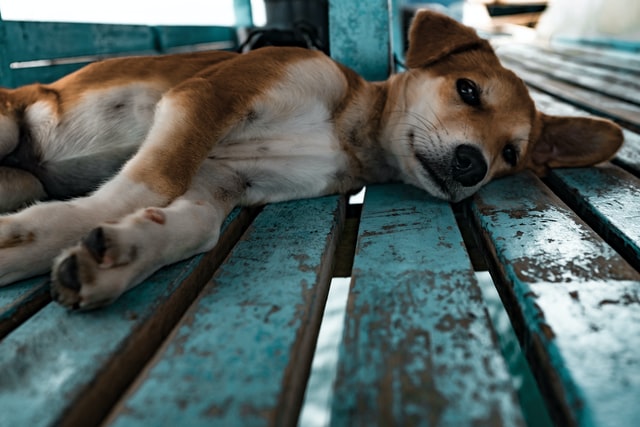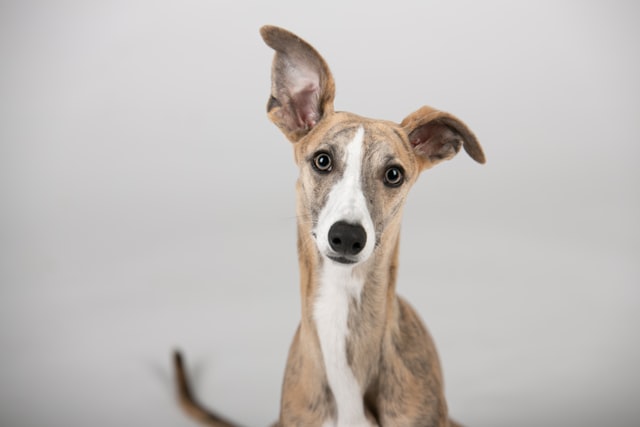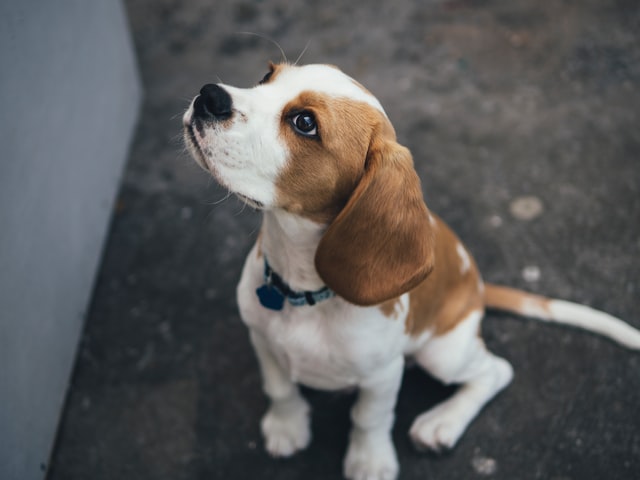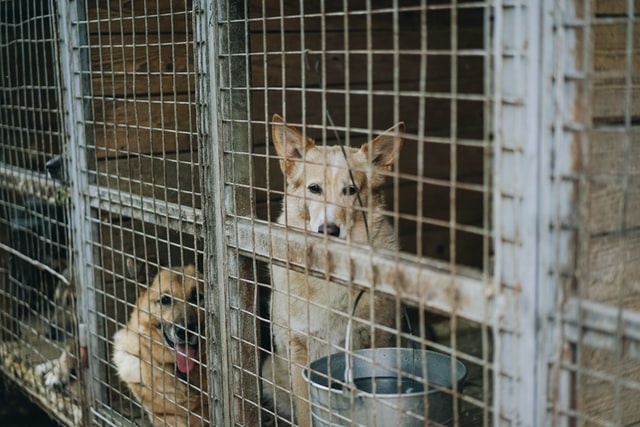Imagine your dog playing in the park or elsewhere, and all of a sudden you find them hiding. Strange, isn’t it?
Is that buzzing sound of a fly irritating or traumatizing your pet dog?
Is your animal acting terrified, unfamiliar, and annoyed around flies?
Dogs who were not socialized or exposed to new things as puppies may act strangely when they are around unfamiliar objects, animals or bugs.
Therefore a fly may seem unusual to him, causing him to act afraid of the little buzzing insect.
No matter how big or small your dog is, flies can be scary!
So, today, I will tell you about why your dog is afraid and if pesky flies have something to do with it!
The Reason Why Your Dog Has A Fear Of Flies
There may be certain reasons for a dog to act strangely in the presence of a fly or several flies.
However, most of the time, fear and unfamiliarity is the explanation behind hiding or cowering in the presence of a little black fly.
But it doesn’t mean that it’s the only reason, many dogs will show fear towards something because of the following:
- They associate the insect or situation with pain
- Negative association
- Sensitive ears
- Lack of socialization
Your Dog Has Been Hurt In The Past
Negative experiences can haunt your dog for years and you will see it in the form of fearful behavior.
If a dog has been bitten by a fly or has felt the sting of another buzzing insect, then this may be a painful memory for them.
Flies have been known to bite at a dog’s ears and linger in their faces, which is an understandably unpleasant experience.
So, if your dog has dealt with fly bites and them invading their personal space, it’s not surprising to see your companion avoid them.
This can happen even at a pet store or at the place where the dog was taking shelter before it came to you.
In some cases, a dog just simply has a fear of insects which may be a reason for your dog’s strange behavior.
Thus, even if you make him comfortable with your surroundings they will still have an inherent fear of the fly, for seemingly no reason at all.
Your Dog Has Had A Negative Association
Sometimes flies bring back bad memories, especially if your dog was adopted from a shelter or a place where they were in close contact with a lot of insects.
It might be possible that the conditions were not very hygienic or ideal, leading to the fear and anxiety that some shelter dogs suffer from when it comes to flies.
Often a rescue dog that is taken from a dirty and overcrowded situation where there was little food and overrun with filth will have a fear of flies and other biting insects.
Even if the dog was not bitten by the fly, he may associate this with a horrid time and experience.
The dog may also feel taken back to the time he was troubled by neglect.
Your Dog Has Sensitive Ears
Dogs have highly sensitive ears in comparison to humans.
They have the capability of catching the frequency which we may generally ignore.
This is why the buzzing sound of a fly may be very distracting, irritating and frustrating.
The noise of the fly or other insect can cause an adverse response to the frequency of the buzzing, potentially driving your dog a little crazy.
Your Dog Hasn’t Been Socialized Or Exposed To Many Situations
If you recently adopted a puppy or even have an adult dog, it is essential to make them a social being.
As pet owners, it is important to maintain a good degree of socialization for their well-being and proper mental health as well as physical development.
When a dog is a puppy, they go through what is called a “fear period” which usually is around 8-11 weeks of age.
If a puppy is not properly socialized and exposed to new environments and situations, it is likely that they will show a lot of fear and anxiety when they finally are.
Dogs can develop fears or phobias of completely normal objects, animals or insects when they are not exposed to new things.
It is extremely important that your dog experiences different people, places and things in order to help them realize that not everything they encounter is scary.
Why Has Your Dog Developed A Phobia Of Flies?
Just like humans, dogs also feel many emotions and act accordingly.
Moreover, dogs have a remarkable sense of hearing and the buzzing sound of a fly may irritate them.
In some cases, a creature as small as a fly may instigate some bad memories from the dog’s past.
This can result in the development of fears and phobias specifically with flies.
How Do You Know If Your Dog Is Afraid Of Flies?
Has your dog been acting strangely when there is a bug in the house?
Do you suspect that they are afraid of flies?
If so, the following signs would indicate if your canine companion has a fear of a little buzzing fly.
- Your dog hides when there is a fly in the house
- They are snapping at the air
- Pacing and acting anxious
Your Dog Hides When There Is A Fly In The House
Usually, when dogs fear something they will cower or hide with their tail between their legs.
This timid behavior is usually a clear indication that something is not right. Your dog will act exactly like this if there is something in the house that is frightening them, such as a dreaded, evil fly.
Your dog may hide inside piles of clothes, behind the couch or under tables in order to avoid the thing that is scaring them.
Your Dog Is Biting The Air
In some rare cases, a dog is biting at the air because they have a neurological disorder, but in most situations, they are probably trying to catch a bug that is bothering them.
However, if there is no such reason it may require urgent medical help as it may also be a case of a disorder.
How To Help A Dog With A Fear Of Flies
The best possible way to help your dog overcome their fear of flies is by making your dog aware of them.
It may sound silly but it can prove to be of great help.
Below are a few recommendations to help your dog with their fear.
- Desensitize your dog
- Build confidence with training
- Don’t perpetuate the issue
- Don’t ignore it
Help Desensitize Your Dog To Flies
Desensitization and classical conditioning is a common technique with animal trainers and veterinary behaviorists.
Taking your dog outside where they must be exposed to the flies will help to get your dog used to their presence.
Now, the flies can still be annoying but as long as your dog is no longer panicking around them, then you have made good progress.
Some people feel that teaching their dog to catch the flies has reduced their fear and anxiety around them.
However, it is not recommended that you trap your dog in a room full of flies so that they can go to town on them.
This will most likely only make their fear worse.
Once you have noticed your dog doing normal activities with flies around, always make sure that you reward them for their bravery!
Just try to remember that desensitization requires time and patience.
It may not happen all of a sudden but gradually you will see a change in your dog’s behavior.
Help Your Dog Build Confidence Around Flies
Confidence is key in helping a dog to overcome fears and anxieties.
When a dog lacks confidence, they oftentimes will display behaviors such as cowering, anxiety and sometimes even aggression.
Creating a positive atmosphere is also a great way to improve confidence in fearful dogs.
Playing often with a dog, patting him, spending some hours with him, feeding him may create a positive atmosphere around him.
This may help your lovable pooch feel braver and less afraid when dealing with flies.
Do Not Perpetuate The Fly Anxiety
Owners will often have a bad habit of accidentally making a scary situation worse for their already fearful dog by saying things like “good boy” or “it’s ok” when they are in an environment that has them afraid.
While their owners are simply trying to diffuse the situation or help their dog with their anxiety, it will usually only make it worse.
Saying things like “good boy” and “it’s ok” while they are displaying signs of fear, aggression or anxiety only encourages the unwanted behavior.
Ignoring The Behavior Won’t Make It Go Away
Even if the issue at hand is something as trivial as a minor fear of flies, if your dog is displaying these behaviors, they should most definitely be addressed.
It is important that we address these fears as ignoring them will usually only make it worse.
How You Can Keep Flies Away From Your Dog
There are a variety of techniques that you can use to help keep the flies away from your home and more particularly your dog.
Using a dog-safe insect repellent will work great and remembering to not leave your dog outside for too long during the hot, fly-ridden summer months is also a good idea.
How Do You Get Rid Of Flies on Dogs Fast?
Applying a generous coat of coconut oil can help keep the flies away from your dog.
This also ensures flesh flies are not attracted to any bites or wounds on the dog’s body.
In addition to this, you may also apply dog-friendly repellents made of natural ingredients.
Or you can also select from a variety of homemade products like apple cider vinegar, lemon, rosemary, mint, citronella and catnip can also serve the purpose. T
his keeps the flies away because of its strong scent.
What Can You Spray On Your Dog To Repel Flies?
For serving the purpose naturally, you can always use homemade remedies. You just need to mix 1 part of this mixture with 5 parts of water.
The mixture contains:
- 1 cup apple cider vinegar
- 1 cup any mineral oil
- Half teaspoon each of the following essential oils; bitter orange, citronella, lemongrass, clove, and eucalyptus.
- 2 cups dish soap
A fear of flies or other insects isn’t terribly uncommon in dogs
The fear may be the outcome of any kind of traumatic experience the dog must have gone through in his past.
The pain he must have gone through may revive automatically with the buzzing sound of the fly.
However, with proper practices, patience, love, care, and cooperation your dog can overcome their fear of flies.
FAQs About Dogs And Flies
What would happen if my dog ate a fly?
Dogs are accustomed to eating house flies, drain flies, etc. and if the size of the insect is small then it is not dangerous at all.
Why are dogs afraid of fly swatters?
Sometimes many pet owners use fly swatters to shoo or kill flies or other bugs in the home and this practice may make the dog afraid of it.
Are dogs scared of roaches?
Some dogs would certainly be afraid of roaches, but it’s more likely that they’ll be curious.
Do dogs like to catch flies?
Yes, some dogs do like to catch flies. Some eat them while a few catch them for fun.
Is it normal for dogs to be scared of bugs?
Yes, it may be the buzzing sound or any traumatizing experience associated with the bug that may scare the dog.
Can you spray apple cider vinegar on your dog?
Yes, apple cider vinegar can be diluted with water and then sprayed on dogs.
However, its direct concentrated form may aggravate some skin problems.
Does Vaseline keep flies off of dogs?
Yes, vaseline just like any other petroleum jelly creates a layer on a dog’s skin thereby warding off the flies.
Coconut oil is more recommended by veterinarians.
Can flies give dogs diseases?
Black flies bite dogs and feed on their blood, eventually laying eggs on the wounds of dogs.
Whereas non-biting flies feed on dogs’ sweat and transmit disease to them.
Can a dog be afraid of bugs?
Many dogs do not like bugs because of their buzzing sound, smell, or some negative experience associated with them.



![[Tested & +20 hrs] Anti Anxiety Music for Anxious Dogs](https://doghealthknowhow.com/wp-content/uploads/2021/11/Anti-Anxiety-Music-for-Anxious-Dogs-768x529.jpg)
![[20+ GIF] Hilarious Scared, Nervous, and Anxiety Dog Memes that Make You Laugh](https://doghealthknowhow.com/wp-content/uploads/2021/11/Scared-Nervous-and-Anxiety-Dog-Meme-768x529.jpg)
